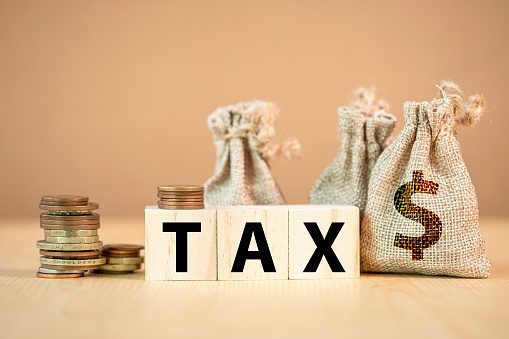How to Maximize Tax Benefits as a Real Estate Investor

Do you wonder if you’re making the most of your tax benefits? Are you looking for more ways to save money? You’re on the right track. This article analyzes how to maximize tax benefits as a real estate investor.
Whether you’re a seasoned landlord, or a newbie trying to figure out your local real estate market, we’ve got answers. So stick around if you’d like to learn the types of rental property income, how to report it, and what deductions you can claim. Additionally, we’ll discuss the 1031 exchange law and how you can use it.
Types of Rental Property Income and How to Report It
- Rent Payment
If you own a rental property, the fee your tenant pays to live on the premises qualifies as rent payment. Details like how much, when, and penalties for lateness should be in your lease.
- Lease Termination Payment
Depending on the state, the law requires a tenant to give their landlord a few days or weeks’ notice before terminating a lease. Sometimes, that involves paying the property owner a fee to make up for the forthcoming loss in rental income.
- Tenant Damage Expenses
If a tenant is at fault for property damage, they are liable for the expenses the landlord uses to fix it. That fee can also be considered a form of rental income.
How to Report Rental Income
The best way to report your rental property income is to fill out the Schedule E section of your tax document. The included 1099 form is specifically for supplemental income and expenses relevant to real estate. Once you’ve navigated to this form, you can fill in details about your property, use days, rental income, and expenses. You can coordinate with your property manager to maximize tax benefits and save more money.
What Deductions Landlords Can Claim
- Loan Interest
More than 50% of properties in the US are on at least one mortgage, and yours is most likely one of them. If you don’t own your house outright, you’re probably making regular repayments that eat into your profit. Luckily, all homeowners can deduct this significant expense from their taxable income.
- Property Taxes
Another deduction landlords are free to claim legally are property taxes. These are mandatory fees each district or municipality charges on every house in the area. They’re levied based on your location and property type.
- Repairs
Wear and tear, tenant damage, and the weather makes repairs inevitable. Thankfully, the IRS makes provision for the deduction of repairs and maintenance costs. Thus, it would help to keep receipts of the shingle replacement, HVAC installation, and repainting job.
- Wages
Running a rental property yourself is pretty tedious, which is why wages are 100% deductible. There are several employees you might have on your payroll to ensure the smooth running of your property, and that costs money. Thankfully, you can legally deduct the salaries of your property manager, lawyer, maintenance workers, and others from your taxable income. Additional expenses from employee gifts and outings or business associate meetings are also deductible.
- Travel
Whether you’re a long-distance landlord or live in the next neighborhood, you’ll have to spend some money on travel. You can deduct expenses you incur while using your car, a bus, or a plane from your taxable income. Besides gas, you can also include the lease, licenses, and parking fees.
Deferring Taxes with a 1031 Exchange
If you plan on selling your rental property, you could be in for a big payday. However, several taxes can eat into your profit if you’re unsure how to go about it. For most investors, a 1031 Exchange allows them to maximize their returns and keep taxes at a minimum.
How does a 1031 Exchange Work?
The 1031 exchange is a provision in the internal revenue code that allows homeowners to avoid capital gains taxes. To do so, the property owner would have to reinvest the profit from selling their house into another of like or greater value. In other words, it allows you to defer taxes in the exchange of property.
For example, if you own a single-family unit worth $350,000, you can avoid slashing your profits by purchasing another SFU. If you were to buy another property worth $450,000, we would refer to the $100,000 difference as boot. On the other hand, if you went for a $250,000 home, the $100,000 difference would be taxable as the 1031 exchange would not apply. You should note that you can include the exchange fees in some cases in your boot. You can include broker’s commission, filing charges, insurance costs, and other expenses incurred during the exchange.
Another thing you should note is that there is a deadline to qualify for the 1031 exchange. If you want to take advantage of this tax provision, you need to find another property within 45 days and close it in 180 days.
Conclusion
That concludes this post on how to maximize tax benefits as a real estate investor. Besides making your rental property more profitable, increasing your income requires cutting costs and leveraging tax deductions. If you want to be a successful landlord, you must learn the types of rental payments, how to report each, and which ones are eligible for deduction. If you need some help, you can lean on an expert property manager for assistance.










